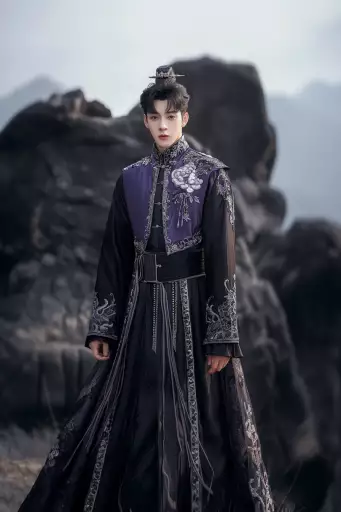Explore the Best AI Image Gallery

Quantum Creativity: Where Art Meets the Quantum Frontier
The intersection of art and technology has always been a fertile ground for innovation. From the Impressionists embrace of photography to the rise of digital art, creative fields have consistently pushed boundaries, seeking new ways to express and experience the world. Now, on the horizon lies a paradigm shift: quantum computing. This revolutionary technology, with its ability to process information at an unimaginable scale, is poised to redefine the very nature of creativity, unlocking unprecedented possibilities for artists, designers, and innovators.
Quantum Leap for Artistic Expression
Imagine generating mesmerizing visual art by feeding algorithms complex mathematical equations, or crafting music scores based on the intricate patterns of quantum entanglement. Quantum computings immense processing power enables us to explore realms of artistic expression previously confined to imagination.
- Generative Art: Quantum algorithms can generate entirely new artworks based on pre-defined parameters and evolving data sets. This opens doors to creating dynamic, interactive art pieces that respond to their environment or the viewers presence.
- Interactive Experiences: Quantum simulations can power immersive, multi-sensory experiences where users actively participate in shaping the artwork through their actions and choices. This blurs the line between artist and audience, fostering a deeper level of engagement and collaboration.
- Novel Materials and Design: Quantum computing can assist in designing new materials with unique properties, enabling artists to create sculptures, installations, or even clothing that exhibit extraordinary textures, colors, or functionalities.
The Impact on Creative Industries
Beyond the realm of fine art, quantum computings influence extends across diverse creative sectors:
- Film and Animation: Quantum algorithms can accelerate rendering processes, enabling filmmakers to create stunningly realistic visuals and intricate special effects with unprecedented detail.
- Music Production: Composers can leverage quantum computers to explore novel harmonies, generate complex melodies, or even create music that adapts in real-time based on listener emotions.
- Game Design: Quantum simulations can power more realistic game worlds, with dynamic environments and characters that respond intelligently to player actions.
Ethical Considerations in the Quantum Age
As with any powerful technology, quantum computing raises important ethical considerations for the creative industry:
- Ownership and Copyright: Who owns the copyright to artwork generated by quantum algorithms? This question requires careful consideration as AI systems become increasingly involved in the creative process.
- Bias and Representation: Quantum algorithms are trained on data, and if that data reflects existing societal biases, it could perpetuate those biases in the art they generate. Its crucial to ensure fairness and inclusivity in the development and deployment of quantum-powered creative tools.
- Accessibility and Equity: The high cost of quantum computing hardware and expertise could create a divide between those who can access its benefits and those who cannot. Its essential to strive for equitable distribution and ensure that the potential of quantum creativity is accessible to all.
The Future of Quantum Creativity
While still in its early stages, quantum computing holds immense promise for the future of creative expression. As research progresses and technology becomes more accessible, we can expect:
- Increased Collaboration: Quantum tools will facilitate collaboration between artists, designers, programmers, and scientists, fostering a new era of interdisciplinary creativity.
- Personalized Experiences: Quantum algorithms can tailor artwork and creative experiences to individual preferences, creating truly unique and immersive encounters.
- Unforeseen Innovations: The potential for quantum creativity is boundless. As we delve deeper into this fascinating field, we are bound to discover new forms of artistic expression and push the boundaries of human imagination.
Quantum computing is not merely a technological advancement; it is a catalyst for a profound shift in our understanding of creativity itself. By embracing its potential and navigating its ethical complexities, we can usher in a new era where art and technology converge to create experiences that are both groundbreaking and transformative.